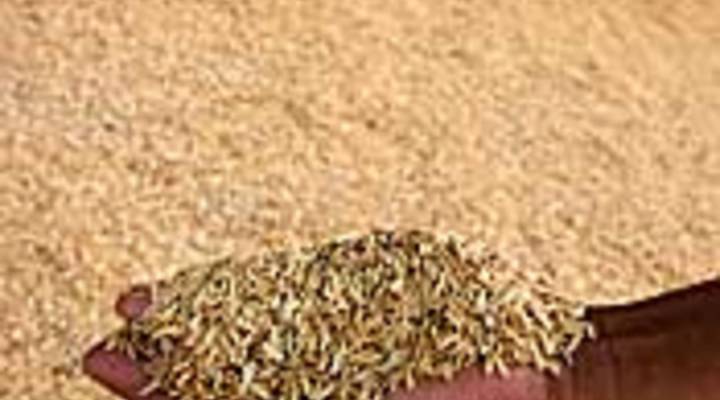
Hoarding threatens global food market

TEXT OF INTERVIEW
TESS VIGELAND: Concerns about a global food shortage got even worse this week.
Kazakhstan suspended all wheat exports until September, and Indonesia joined several large countries in stopping all exports of rice. The situation is reaching, or has reached, crisis stage in many regions. Riots broke out in Haiti last week over a rice shortage. Bangladesh let the world know it needed to import some 25,000 tons of rice. Nobody responded — nobody. Javier Blas covers the commodities market for the Financial Times, and Javier what is the long-term effect, locally, if these countries are hoarding grain supplies for the domestic market?
JAVIER BLAS: The impact on the domestic population is going to be that prices locally are going to go down, and that means that farmers are going to get less money. People in the cities are going to get some relief, but the bad thing for that policy is that the farmers are not getting a benefit for the rising international prices. They are not going to increase their plantation because they are not going to get extra money. That means that the crisis, instead of maybe fading away in the next few months, is going to keep at it for a longer time, maybe a year or two years.
VIGELAND: You know, this food crisis has been brewing for some time, months if not years, but I have to tell you, it really seems to have bubbled over in recent weeks. Why is that?
BLAS: I think there are two or three factors here. The first one is that until very recently, food prices were rising, but it was mostly concentrated on the wheat market, corn and soybeans, but the new factor now is rice. Rice prices are rising, and rice is a much more political, agricultural commodity. It is the staple for about three billion people in the planet, and between one and a half and two billion people basically eat rice and that’s it.
VIGELAND: You mentioned the price of rice, and can you give us some context for how much those prices have spiked recently?
BLAS: It’s absolutely incredible, the increase. In 2005, you were to buy a ton of rice, it’d cost about $250 a ton. That moves to about $300 in 2006, and $350 in 2007. That’s on average, but at the end of last year we began to see a price increase, and price basically in December, January, December 2007, January 2008, was close to $500.
VIGELAND: Jeez.
BLAS: Today, $860.
VIGELAND: Eight hundred and sixty dollars a ton?
BLAS: Yes.
VIGELAND: So, in the last three or four months, the price of rice has doubled?
BLAS: Yes, indeed.
VIGELAND: Is there an element of a domino effect here, almost a panicked domino, where one country decides to halt exports, and so then another does, and then another does, and so on and so on?
BLAS: I think that what you are saying is a key point of the crisis now. This is a panicked domino effect, where everyday we see a couple of more countries banning exports just because they want to insulate the country from other international markets.
VIGELAND: What happens if, say six months down the road, this trend continues?
BLAS: If this continues for six months, the global food market is going to close. Countries who rely on the global food market are going to be unable to purchase their needs. That means that hunger is going to increase in those countries, and the key, critical regions to be hit, it will be Africa and Southeast Asia, but even some advanced countries in Europe.
VIGELAND: Javier Blas, thank you.
BLAS: Thank you.
There’s a lot happening in the world. Through it all, Marketplace is here for you.
You rely on Marketplace to break down the world’s events and tell you how it affects you in a fact-based, approachable way. We rely on your financial support to keep making that possible.
Your donation today powers the independent journalism that you rely on. For just $5/month, you can help sustain Marketplace so we can keep reporting on the things that matter to you.


















